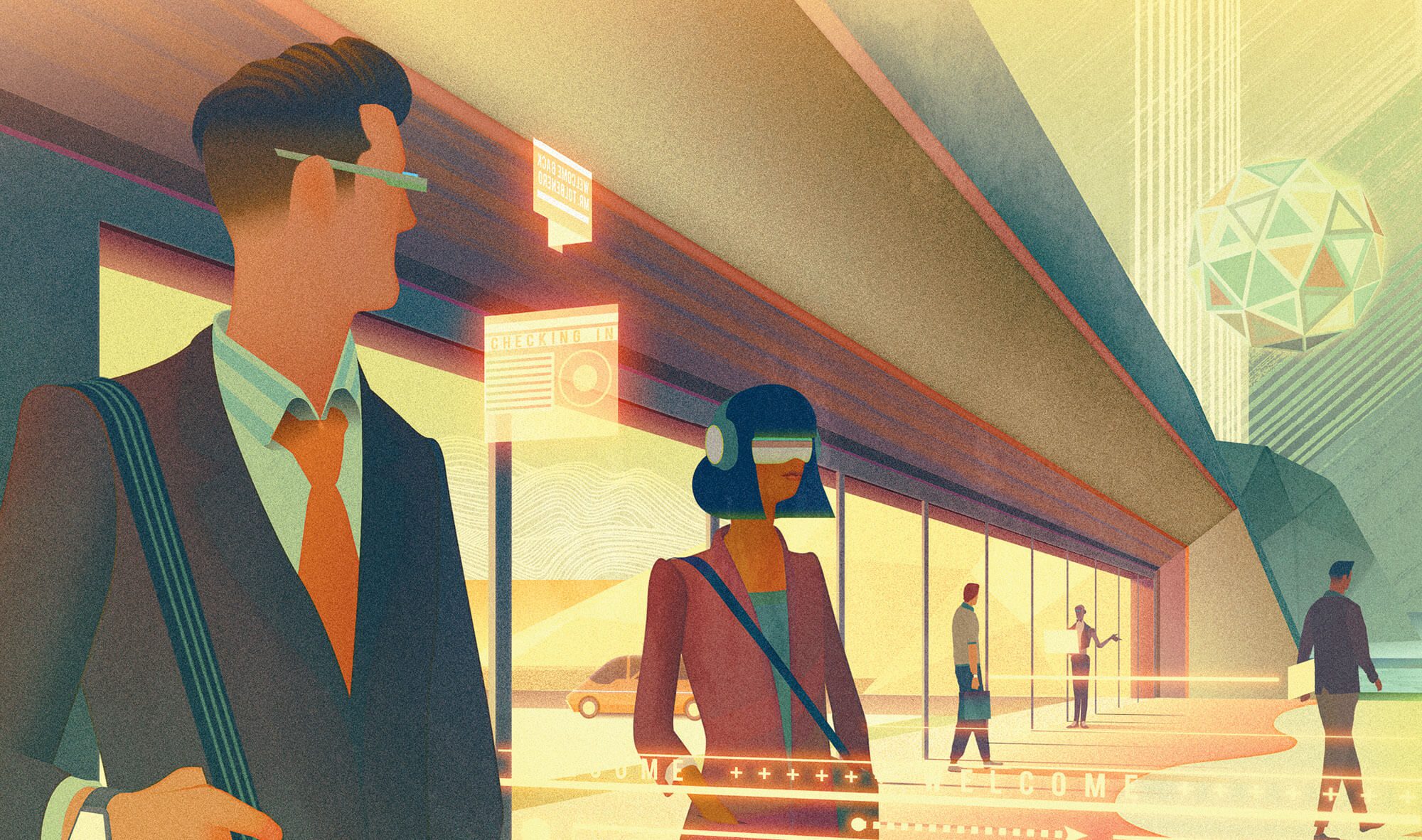Abby Jo Sigal, MBA 99
Executive Director, NYC Mayor’s Office of Talent and Workforce Development
 The metaverse—essentially a 3D version of the internet in which users can interact digitally within an environment and with other users—is a hot topic, but what are its use cases? Gaming is the most obvious and frequently mentioned. However, as technologies progress, the metaverse will definitely bring more to our future generations.
The metaverse—essentially a 3D version of the internet in which users can interact digitally within an environment and with other users—is a hot topic, but what are its use cases? Gaming is the most obvious and frequently mentioned. However, as technologies progress, the metaverse will definitely bring more to our future generations.
My research partner, Andrea Chang, MBA 22, and I began offering insights into the metaverse while at Haas. We continue to share our personal perspectives via our blog (metaresearch.substack.com). Here are the four major areas that we believe the metaverse will bring innovations to.
Education: Teaching Tacit Knowledge
During the pandemic, remote education proved to be a workable way for students to acquire knowledge. However, the experience that physical schools provide is hard to replace. Many students still want a physical location in which to interact, conduct experiments, or even see things with their own eyes. Though textbooks, websites, and Zoom classes are enough for students to learn explicit knowledge, for tacit knowledge, students need a better channel.
The metaverse can bridge the learning experience between digital and physical settings, giving teachers a powerful tool to transfer both explicit and tacit knowledge. With virtual reality, kids can travel to Egypt and explore the pyramids while learning historical facts, or they can join a court session to practice debate skills.
Workplace: Capabilities and Productivity Improvement
Human abilities can significantly increase if knowledge of the virtual world seamlessly connects with the physical world.
In the office, the metaverse can increase productivity. Augmented reality glasses can help people find their next meeting, check someone’s LinkedIn profile while talking to them, and access documents quickly. Platforms such as Spatial, Microsoft Mesh, and Horizon Workrooms allow team members from different regions to feel one another’s presence and collaborate smoothly.
With AR glasses, specialists can perform complicated tasks more accurately and efficiently. In 2016, Microsoft demonstrated how 24,000 elevator service technicians can use HoloLens to identify problems ahead of a job and have remote, hands-free access to technical information when on site. Last year, Johns Hopkins surgeons performed AR surgeries on living patients, aided by projected images of a patient’s internal anatomy from CT scans.
Entertainment: Bringing “Experience Equity” to the Public
While the internet brings knowledge equity to its users, the metaverse will offer “experience equity” to future generations, making once exclusive experiences free to the general public.
For people with limited capital or physical abilities, the metaverse can provide access to activities and places they cannot experience in the physical world. Patients who are unable to leave the hospital can go hiking with their friends. Young people who do not own a house can join parties at fancy apartments on metaverse platforms.
For people with limited personal space in the physical world, the metaverse offers a spacious land in which to breathe and relax. Students in a dorm, residents in a crowded city, or kids sharing a room with siblings can find and even create a space that belongs to them. And activities can happen anywhere. Users can exercise on volcanoes, have parties on Mars, and sing in the deep ocean.
Creation: Unleashing Creativity
The metaverse gives creators better tools to create worlds and assets to express their imaginations. Architecture, for example, can use virtual reality and digital twin technologies to design a house from a user’s perspective.
With the creator-economy functionalities like NFTs (non-fungible tokens) that the metaverse may provide, general users can monetize their work easily. The entry barrier to becoming a creator will be significantly lower.
More to come
The development of metaverse technologies is still in progress. It’s impossible to capture all the possibilities now, but one thing is for sure—the metaverse will give users more freedom and more options to live their reality.
Posted in:
Topics:



